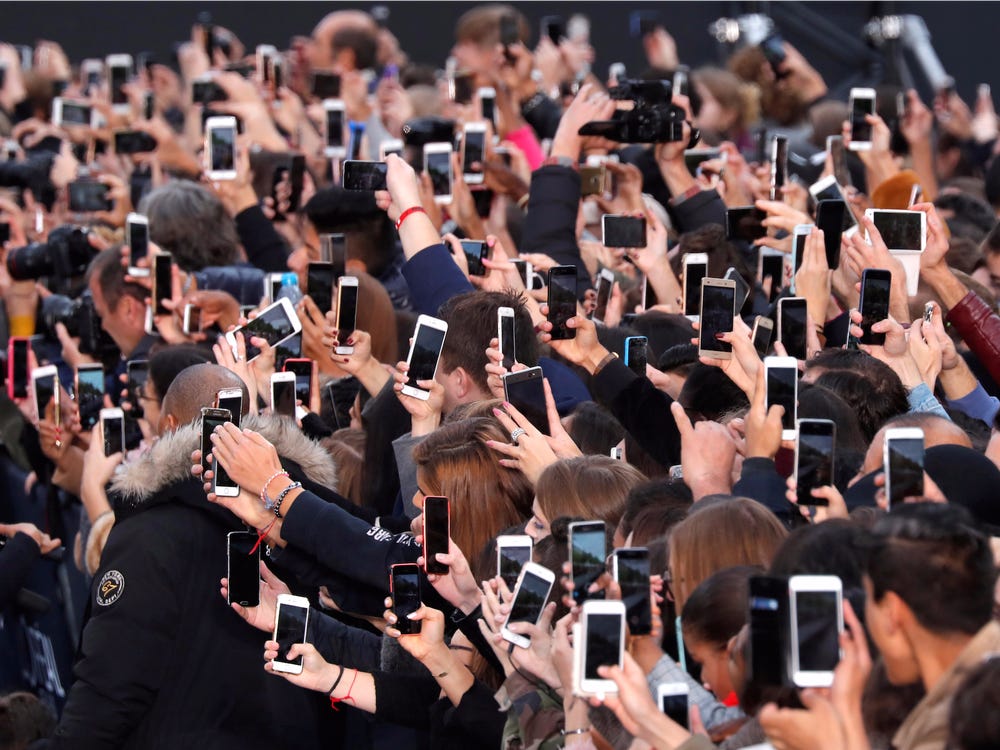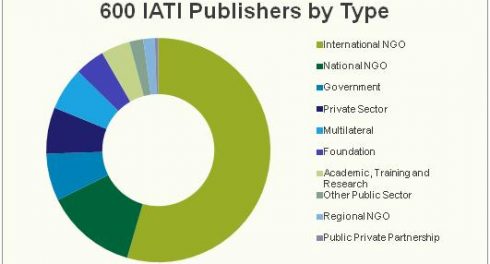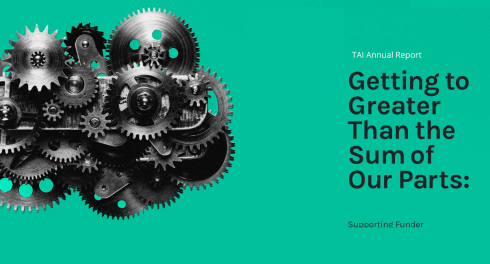Highlight
- Things are gonna change around here…
- Debt bet
- Trace me now (oh, you already have)
- Reality bites
- All things non-COVID related… civic engagement, UWOs, communication slush funds and big data subverting democracy
- TAI Spotlight: Learning in a time of crisis
Things are gonna change around here

Photo credit: Peo Quick/Alamy
As people settle into the habits of living in quarantine, thoughts turn not just to when lockdowns will end around the globe, but what type of world we will face on the other side. More specifically at TAI we are pondering what it means for global governance prospects. Frances Z. Brown, Saskia Brechenmacher, and Thomas Carothers suggest the changes will be significant: “The coronavirus will likely transform electoral processes, civilian control of militaries, civic mobilization, and potentially reset the terms of the global debate on the merits of authoritarianism versus democracy.”
The picture they paint is not pretty, although, with orthodoxies out the window, perhaps more positive reforms will emerge, too. In the meantime, Ian Bassin, co-founder of Protect Democracy, makes a case of how we can protect core democratic values during the pandemic. An illustration of the challenge comes from Kazakhstan, where civil rights activists and the press are under pressure as the government seeks to limit domestic and international attention on the measures taken in response to COVID-19.
What role should civil society be playing? The temptation is to cover gaps that government procurement systems are failing to fill and we are certainly seeing a rise in community organization from China to the US to South Africa. Yet, it is hard to disagree with Ayisha Osori of the Open Society Institute of West Africa that civil society should not be handing out sanitizer, but playing to its strengths: “Defending the marginalized, prioritizing the overlooked and contextualizing developments is what we do best.”
As an indication of how opinions are shifting amid the pandemic, a new poll by Tax Justice UK reveals a majority of UK public thinks social issues have worsened in the last 10 years and wants the wealthy to pay more taxes. Max Gallien and Vanessa van den Boogaard explore challenges of how tax breaks are missing those working in the informal economy and offer recommendations on what can be done to support vulnerable workers during and after the crisis. Mick Moore explains how African countries can structure their tax systems to shield the poor from the economic impact of COVID-19. The OECD Forum on Tax Administration, in collaboration with CIAT and IOTA, published critical business continuity considerations for tax administrations.
Debt bet
As lower income countries prepare for the worst effects of coronavirus, some encouragement in the responsiveness of multilateral and bilateral lenders to free up funds to cope with the crisis. G20 countries close in on a debt moratorium agreement with the prospect of formal debt relief to come. This builds on an IMF and World Bank call to action. Good news if funds will not go to debt service payments, but what assurance they will be used for health responses and social safety nets? Last week we flagged the protest tracker and the freedoms tracker – time for a spending and corruption tracker?
Even if China agrees to debt relief, experts agree it could still come out with stronger influence in developing country contexts. At the same time, Chinese firms, like many multinationals, are invoking “force majeure” clauses in contracts to halt projects and purchases. Yau Tsz Yan offers an insight into impacts in Central Asia where natural gas exports to China have nosedived.
Trace me now (oh, you already have)

Photo Credit: Reuters/Charles Platiau
As Wuhan returns to life after over two months lockdown, technology companies still face pressure to hand over user’s personal data in efforts to monitor and track contact cases. Jessica Brandt thinks the Chinese government is using the crisis to gloss over its extensive censorship methods and repression of dissent, while Madhumita Murgia and Anna Gross contextualize a broader intent to reinvent the internet. Following suit is Russia with the use of facial recognition to track residents in an effort to tackle the pandemic.
Aside from tracking your every move, what about the role of your phone as a survey instrument? With social distancing, social scientists are doing more phone surveys to understand and analyze impact of the pandemic. Subha Mani and Bidisha Barooah highlight the risks respondents might face and offer suggestions on how researchers could mitigate them while adhering to the ethics of conducting phone survey research.
The Brookings Institution also calls for healthy skepticism regarding the use of Artificial intelligence to combat COVID19, lest we make unintended pervasive biases and deliver deceptive accuracy rates. Good to checkout these papers on how Data Protection Impact Assessments can be used as a framework to help us know whether government’s use of data is according to the rule of law and how to ensure transparency in data sharing. The Partnership in Statistics for Development in the 21st Century (PARIS21) also published a policy brief on measures to be taken to improve data ecosystem governance for informing policies during and after COVID-19.
Stefania Milan and Emiliano Treré posit the widening data divide in the Global South indicates a risk of universalizing the COVID-19 Problem. They call for a global alliance of experts who can fast-track the capacity building of developing countries. Pair that with International Fact-Checking Network’s CoronaVirusFacts/DatosCoronaVirus alliance database and you can help curb the spread of dis/misinformation by checking the veracity of the content they want to share or read. The database unites fact-checkers in more than 70 countries and includes articles published in at least 40 languages.
Reality bites

As economies enter uncharted territory with job losses mounting or looming, the international development sector is no exception. A poll by the UK aid coalition Bond reveals that about half of UK development NGOs anticipates needing to cease operating in 3 months without additional funding. At the same time, philanthropy might face its own pressures to cut back as endowments fall. FoundationMark research projects a 4.8 percent decline in grantmaking by US foundations this year. The OECD Development Assistance Committee members pledge to safeguard overseas aid budgets, but how feasible that will prove politically is yet to be tested.
What do funders do? Over 600 funders (including most TAI members) have now signed the philanthropic call to action and Tom Hilbink and Daniela Aydin at Open Society Foundations urge funders to seize this opportunity to transform grantmaking for the better. Valerie Threlfall, Melinda Tuan, and Fay Twersky say by learning to listen effectively now, funders will emerge from this crisis better partner to grantees from this crisis. Andrés Spokoiny’s urges funders to redefine efficiency during this crisis and think about building resilient institutions (music to TAI’s ears).
For nonprofits, Mal Warwick offers advice on fundraising in tough times. Pair with guidance on how to outrun a recession. Also, review your crisis management strategy with this checklist.
Finally, learn from the experience of Center for Effective Global Action as they host a 300+ person conference online in just a few days.
All things non-COVID related
We start with some important research findings around civic participation. Read how the World Bank attempts to systematically link civic engagements into its projects to protect the citizen’s voice. Then turn to insights from Jodie Thorpe and John Gaventa on how citizens can participate in economic decision making.
Turning to funders, new research points to the importance of donors instituting principles-based strategic learning.
A new report from OECD explores how creating culturally and behaviorally informed procurement strategies can enable a more public procurement system in Slovenia. In another report, they offer practical guidance and lessons on fighting corruption from Morocco.
Grigory Mashinov flags that Russia’s increased presence in Africa could mean more corruption and be bad for both sides. In the UK, the push to use “Unexplained Wealth Orders” to combat suspected money laundering through property investments hit a snag as a court overturn its attempt to question suspected ill-gotten gains of the former president of Kazakhstan.
Observatoria Del Gasto Fiscal en Chile puts out fascinating analysis showing opacity of government spending on advertising.
Press freedom took another hit in Tanzania as the court convicts Maxence Melo, founder of online whistleblowing platform, Jamii Forums, on charges of obstructing police investigations. Meanwhile, hundreds of CSOs have vowed to boycott the next G20 civil society engagement process hosted by and in Saudi Arabia (think: murder of Khashoggi, jailed human rights defender, bombing of Yemen, and repression of women and dissidents).
Finally, read up on the risks that big data poses to democracy, especially due to voter unawareness of the identity of senders of news online as the CyberPeace Institute (supported by TAI members Hewlett and Ford Foundations among others) detail the need and potential to strengthen cybersecurity and protect those of every more dependent on digital infrastructure.
TAI Spotlight: Learning in a time of crisis
Learning in a time of crisis | Transparency and Accountability Initiative
TAI’s Head of Learning and Impact, Alison Miranda reflects on the role of learning officers during this unprecedented, global crisis. She highlights three key principles and practice learning officers can bring to the table, not only to support themselves but their colleagues and the partners their organization works with.
How to help nonprofits hit hard by COVID-19 | Ford Foundation
Ford President, Darren Walker shares insight on how the coronavirus pandemic is affecting social service and cultural organizations, where the greatest needs are for New York City nonprofit organization and how you can get involved in the fight against COVID-19.
To protect our own populations and economies from Covid-19, the world must work together | DFID
DFID’s Secretary of State, Anne-Marie Trevelyan, joined six other Development Ministers calling for a coordinated and close international response to fight the pandemic to protect citizens and economies as well as the world’s most vulnerable.
Lessons for at-home learning | MacArthur Foundation
MacArthur’s Senior Program Officer for Journalism and Media, Jen Humke, shares resources and tips for digital learning for people with kids at home due to COVID-19.
CALL
- Job postings at Ford Foundation – Ongoing
Job postings at Luminate – Ongoing
BetterTogether Challenge for innovators – Ongoing
Job postings at Democracy fund – Ongoing - Free Digital Security Training – Ongoing
- Open Road Alliance Charitable Grant and Loan to organizations responding directly to COVID-19 – Ongoing
- Pulitzer Center Coronavirus news collaboration challenge – (Applications will be reviewed on a first-come, rolling basis)
- Call for research proposals: Tax and development in South Asia – Proposal accepted on a rolling basis
- Call for proposals – Swashakt: Empowering women through collectives and group-based approaches – April 14, 2020
Kamal Adham Fellowship for Television and Digital Journalism – April 15, 2020 - Call for Applications: WE EMpower UN SDG Challenge 2020 – April 15, 2020
- Cross-border investigative reporting fund April 15, 2020 (There are three application rounds in 2020)
- Global Tech Challenge: Solutions for Women – April 15, 2020
- Freedom of speech through the eyes of a cartoonist in Kyrgyzstan – April 17, 2020
- Centre for Investigative Journalism Conference Grant – April 19, 2020
- Strategic Communications & Campaigns Manager April 21, 2020
- The Boston Globe Spotlight Investigative Journalism Fellowship – April 24, 2020
- Research Officer for quantitative work on Rwanda and Ethiopia at ICTD – April 25, 2020
- Call for Applications: Making a Difference Awards (highlights and promotes how the best of research has made a significant difference to Charities and Not-For-Profits) – April 27, 2020
- Getty Images inclusion scholarship – April 27, 2020
- Co-Impact systems change grants (round three) – April 30, 2020
Request for proposal: Independent Public Interest Journalism – April 30, 2020
Call for suggestions on Humanitarian and Development Data Forum agenda – May 2020 - Allard Prize photography competition – May 1, 2020
- Grants fund investigative journalism – May 4, 2020
- Call for Projects Paris Peace Forum 2020 – May 12, 2020
- Call for applications: Intensive Anti-Corruption Training for Future Leaders – May 20, 2020
- Lead Researcher at ICTD DIGITAX programme – May 24, 2020
- Policy and Engagement Consultant at ICTD DIGITAX programme – May 24, 2020
- Proposal Submission for the 2020 Summer Evaluation Institute – June 7-10, 2020
Marielle Franco Award for Feminist Essays 2020 – June 16, 2020 - Amartya Sen Essay Contest 2020: Illicit financial flows – August 31, 2020
Call for Submissions to SSIR Series: Social Change in an Era of Extreme Polarization – Last Thursday of every month until early 2021
CALENDAR
Please double check the websites for these events to make sure they are still happening – most likely they are not, though some may now be reconfigured for virtual participation.
- Transparency International: 19th International Anti-Corruption Conference – (Postponed)
- Danish Institute for Parties and Democracy online debate: Strongmen & Democracy in the time of the corona-pandemic – April 15, 2020 (10am -11am CEST)
- Institute of Development Studies online roundtable: Covid-19 and the informal economy: Responses, relief, and research – April 16, 2020 (9am -10am EST)
- Harambee – Let’s All Pull Together (largest gathering of Black professional in philanthropy) – April 16-18, 2020 (Raleigh, North Carolina, United States of America)
Global Technology Governance Summit – April 21-22, 2020 (San Francisco, United States of America)
Shaping the Future Forum 2020 – April 22 – 23, 2020 (Washington, DC)
Virtual Office Hour – Managing Change in (Rapidly) Changing Times (Every Thursday at 2pm ET through April 23) - British Expertise International Awards 2020 – April 23, 2020 (Kensington, United Kingdom)
- 3ie London Evidence Week Conference 2020 – April 23, 2020 (London, UK)
Personal Democracy Forum CEE 2020 – April 23-25, 2020 (Gdansk, Poland)
2020 International Symposium on Online Journalism (ISOJ) – April 24-25, 2020 (Austin, United States of America)
Dart Center webinar series on COVID-19 reporting (Running till 30 April) - 2020 Collective Impact Virtual Convening – May 6 -8 2020 (12:00 CDT)
- Global Digital Development Forum May 6, 2020 6AM-10P GMT
- Frontiers of Social Innovation: People, Power & Resources: The Redistribution Wave – May 12-14, 2020 (Stanford University, California, USA)
2020 Media Impact Forum (funder-only gathering) – June 2, 2020 (New York, United States of America)
Human Rights Litigation Summer School at Berlin, Germany – June 8-12, 2020
Women and Girls Africa Summit – June 9-12, 2020 (Durban, South Africa)
RightsCon 2020 – June 9-12, 2020 (San Jose, Costa Rica)
2020 Neighborhood Funders Group National Convening (philanthropy support to grassroots power building) – June 29 – July 1, 2020 (Washington, DC) - WE EMpower UN SDG Challenge 2020 – September 18 – 27, 2020 (New York City, United States of America)
- The 2020 Journalism Funders Gathering (funder-only gathering) – October 6-7, 2020 (Philadelphia, United States of America)
Humanitarian and Development Data Forum – November 2-4, 2020 (Chambery, France)
International Open Data Conference –November 18-20, 2020 (Nairobi, Kenya)


